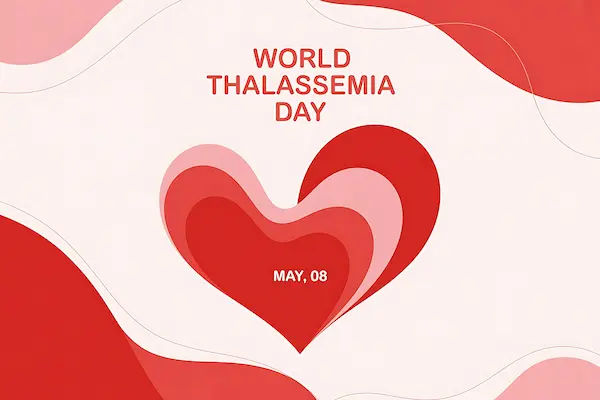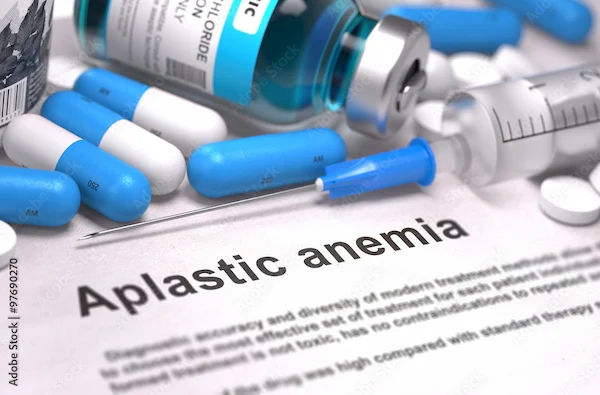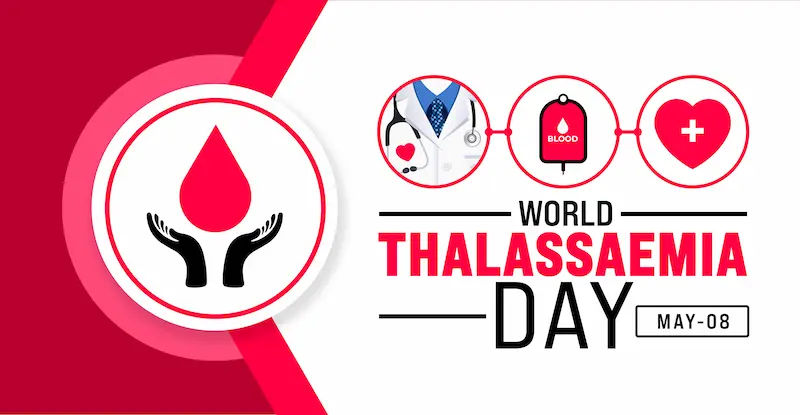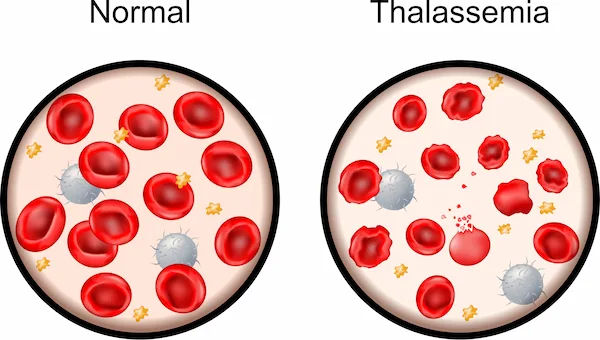Understanding the Conclusion of Thalassemia Care
Explore the final stages of thalassemia care, including long-term management, treatment outcomes, and quality-of-life considerations. Understand how ongoing support and medical advances shape better futures for patients.

Written by Dr. Dhankecha Mayank Dineshbhai
Reviewed by Dr. Rohinipriyanka Pondugula MBBS
Last updated on 13th Jan, 2026

Thalassemia is a genetic blood disorder that affects the body’s ability to produce healthy red blood cells and hemoglobin. Managing thalassemia requires lifelong care, but with the right treatment and lifestyle adjustments, patients can lead fulfilling lives. If you or a loved one has thalassemia, understanding the condition and its care plan is crucial for long-term well-being.
What is Thalassemia?
Thalassemia is an inherited blood disorder where the body produces fewer healthy red blood cells and less hemoglobin than normal. Hemoglobin is the protein in red blood cells that carries oxygen throughout the body. When hemoglobin levels are low, the body doesn’t get enough oxygen, leading to fatigue, weakness, and other complications.
There are two main types of thalassemia:
Alpha thalassemia – Occurs when there’s a problem with the alpha-globin protein chain.
Beta thalassemia – Occurs when there’s a defect in the beta-globin protein chain.
The severity of thalassemia varies:
Thalassemia minor (trait) – Mild or no symptoms; carriers may not need treatment.
Thalassemia major – Severe form requiring regular blood transfusions and medical care.
Consult top Hematologist
Symptoms of Thalassemia
Symptoms depend on the type and severity of the condition. Common signs include:
Fatigue and weakness
Pale or yellowish skin (jaundice)
Slow growth in children
Bone deformities (especially in the face)
Dark urine (due to excess hemoglobin breakdown)
Frequent infections
If you notice these symptoms, consult a doctor for proper diagnosis.
Causes and Risk Factors
Thalassemia is caused by genetic mutations that affect hemoglobin production. It is inherited from parents, if both parents carry the thalassemia gene, their child may develop the condition.
Risk factors include:
Family history of thalassemia
Certain ethnic backgrounds (common in people of Mediterranean, South Asian, African, and Middle Eastern descent)
How Thalassemia Affects Health
Without proper care, thalassemia can lead to complications such as:
Anemia – Chronic lack of healthy red blood cells.
Iron overload – Frequent blood transfusions can cause excess iron buildup, damaging organs like the heart and liver.
Bone problems – Thinning bones and deformities due to bone marrow expansion.
Heart and liver disease – Untreated iron overload can lead to serious organ damage.
Delayed growth and puberty – Especially in children with severe thalassemia.
Managing Thalassemia
While thalassemia is a lifelong condition, proper management can improve quality of life. Treatment options include:
1. Blood Transfusions
Regular transfusions help maintain healthy hemoglobin levels.
Needed for patients with thalassemia major.
2. Iron Chelation Therapy
Since frequent transfusions cause iron buildup, chelation therapy helps remove excess iron from the body.
3. Bone Marrow or Stem Cell Transplant
A potential cure for some patients, especially children with a matched donor.
4. Folic Acid Supplements
Helps the body produce healthy red blood cells.
5. Healthy Lifestyle Choices
Diet – Eat iron-rich foods only if advised (some patients need to limit iron). Include calcium and vitamin D for bone health.
Exercise – Moderate physical activity helps maintain strength and energy.
Regular Check-ups – Monitor iron levels, organ function, and overall health.
Emotional and Mental Well-being
Living with thalassemia can be challenging, so emotional support is essential. Joining support groups, talking to a counselor, or connecting with others who have thalassemia can help.
When to Seek Medical Help
If you experience:
Severe fatigue or weakness
Shortness of breath
Jaundice (yellow skin/eyes)
Irregular heartbeat
Seek immediate medical attention.
How Apollo 24|7 Can Help
If you or a family member has thalassemia, Apollo 24|7 offers expert consultations, blood tests, and personalized care plans. You can:
Book a hematologist consultation for specialized care.
Schedule blood tests to monitor hemoglobin and iron levels.
Get guidance on treatment options tailored to your needs.
Conclusion
Thalassemia is a manageable condition with the right medical care and lifestyle adjustments. Early diagnosis, regular treatment, and a healthy lifestyle can help patients lead active lives. If you suspect thalassemia or need expert advice, consult a doctor today.
Consult top Hematologist
Consult top Hematologist

Dr Abilash Jain
General Physician/ Internal Medicine Specialist
12 Years • MBBS,DNB(FM),MNAMS,FIAMS,CCGMG(GERIATRICS),DGM (GERIATRICS),PGCD(DIABETES,BOSTON UNIVERSITY),FID(DIABETICS UK)CCEPC(PALLIATIVE CARE),CCCC(CRITICAL CARE)
Visakhapatnam
Apollo Clinic Vizag, Visakhapatnam

Dr.sanchayan Mandal
Medical Oncologist
17 Years • MBBS, DrNB( MEDICAL ONCOLOGY), DNB (RADIOTHERAPY),ECMO. PDCR. ASCO
Kolkata
Dr. Sanchayan Mandal Oncology Clinic, Kolkata

Dr. E Prabhakar Sastry
General Physician/ Internal Medicine Specialist
40 Years • MD(Internal Medicine)
Manikonda Jagir
Apollo Clinic, Manikonda, Manikonda Jagir
(150+ Patients)

Dr. Prabu P
Haematologist
29 Years • MBBS, MD(Gen.Med.)(JIPMER) , MRCP, Dip RCPath, FRCPath, CCT(U.K), Haemato - Oncology.
Chennai
Apollo Hospitals Greams Road, Chennai
(550+ Patients)

Dr. Ramalinga Reddy
General Physician
5 Years • MBBS MD General medicine
Bengaluru
PRESTIGE SHANTHINIKETAN - SOCIETY CLINIC, Bengaluru
.webp)



